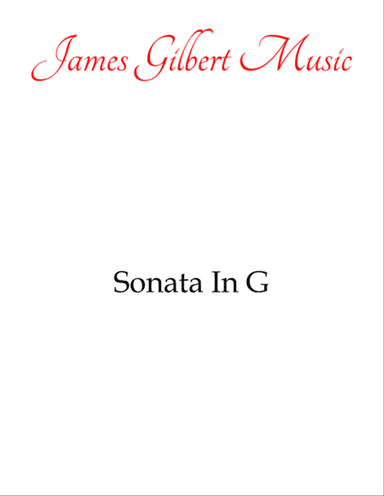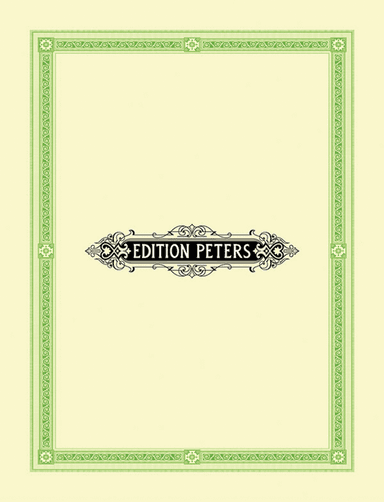Unavailable
Mozart - Piano Sonata G Major K 283 is currently unavailable
We can no longer provide this arrangement through Sheet Music Stores. The listing stays online so you can learn about the piece and explore alternatives.
Try these next steps
- Discover similar sheet music curated for you below.
- Search for “Mozart - Piano Sonata G Major K 283” across our catalog.
About this arrangement
This item will ship directly from our Australia warehouse! Piano SKU: HU.HN601 Composed by Wolfgang Amadeus Mozart. Edited by Ernst Herttrich. Piano Solo, Piano & Keyboard, Repertoire, Solos. Piano Sonata G major K. 283 (189h). Classical. Softcover Book. 19 pages. G. Henle #HN601. Published by G. Henle (HU.HN601). 12.2 x 9.3 x 0.1 inches.An authoritative Urtext edition of the Piano Sonata G major K.283 by Mozart. Edited by Ernst Herttrich with fingering by Hans-Martin Theopold. FIRST MOVEMENT The fifth sonata K 283 (189h), in the pastoral and joyous key of G major, is especially popular; it again displays novel ideas, musically and pianistically. The diversity of its melodic invention is highly typical of Mozart, and so is the clear-cut sonata form of the first movement. The very first idea is a marvel of folkmusic-like invention. The opening theme and its continuation is an interplay of question and answer with the final response in baroque hemiola rhythm (a sudden 3/2 meter interpolated in a 3/4 movement). The ornamented unison passage which follows (mm. 16-22) is superbly written and sounds especially brilliant and full-bodied on the pianos of Mozarts time. This tutti effect was one of his favourites, and he also used it in later works, such as the Variation on a Theme by Gluck K 455 the Piano Concerto K 456/I and the cadenza of the Piano Concerto in G major K 453/I. SECOND MOVEMENT The Andante in C major is unpretentious, but with the help of subtle shading in performance, the repeated notes of the theme can become really effective. Unlike the first movement, which in place of a new development section simply presents a new idea followed by an extended transition to the recapitulation, the second movement contains a true development in the 19th century textbook sense, presenting the subject first in the right hand (in D minor and C major) and then in the lower register and so no. THIRD MOVEMENT A scintillating virtuoso Presto concludes this Sonata. At the very end, there is a typical Mozartian joke: he wrote the word Coda into the score; but instead of the expected elaborate epilogue, this tail consists of only two concluding chords. About Henle UrtextWhat I can expect from Henle Urtext editions: error-free, reliable musical texts based on meticulous musicological research - fingerings and bowings by famous artists and pedagogues preface in 3 languages with information on the genesis and history of the work  Critical Commentary in 1 – 3 languages with a description and evaluation of the sources and explaining all source discrepancies and editorial decisions  most beautiful music engraving  page-turns, fold-out pages, and cues where you need them  excellent print quality and binding  largest Urtext catalogue world-wide  longest Urtext experience (founded 1948 exclusively for "Urtext" editions)
Related sheet music

Piano Sonatas, Volume 1 K. 279-284, 309-311
wolfgang amadeus mozart

Sonata In G Major (K. 283) (arr. James Gilbert Music)
w. a. mozart, james gilbert music

A Classical-Style Christmas
faye lopez

Piano Sonata in G Major K283 (189h)
wolfgang amadeus mozart

30 Mozart Easy Piano Classics
misha stefanuk

Sonata In G Major (K. 283)
wolfgang amadeus mozart

Mozart: At the Piano
wolfgang amadeus mozart

Sonata, K 283 in G Major - Piano Duet
wolfgang amadeus mozart, edvard grieg

Mozart - Piano Sonata No. 5 in G Major, K. 283 I. Allegro - Original With Fingered - For Piano Solo
wolfgang amadeus mozart, poon

Mozart - Piano Sonata No. 5 in G Major, K. 283 I. Allegro - Original With Fingered - For Piano Solo (arr. poon)
wolfgang amadeus mozart

Mozart - Piano Sonata No.5 in G major K 283 - Complete score (arr. Santino Cara)
santino cara, mozart wolfgang amadeus